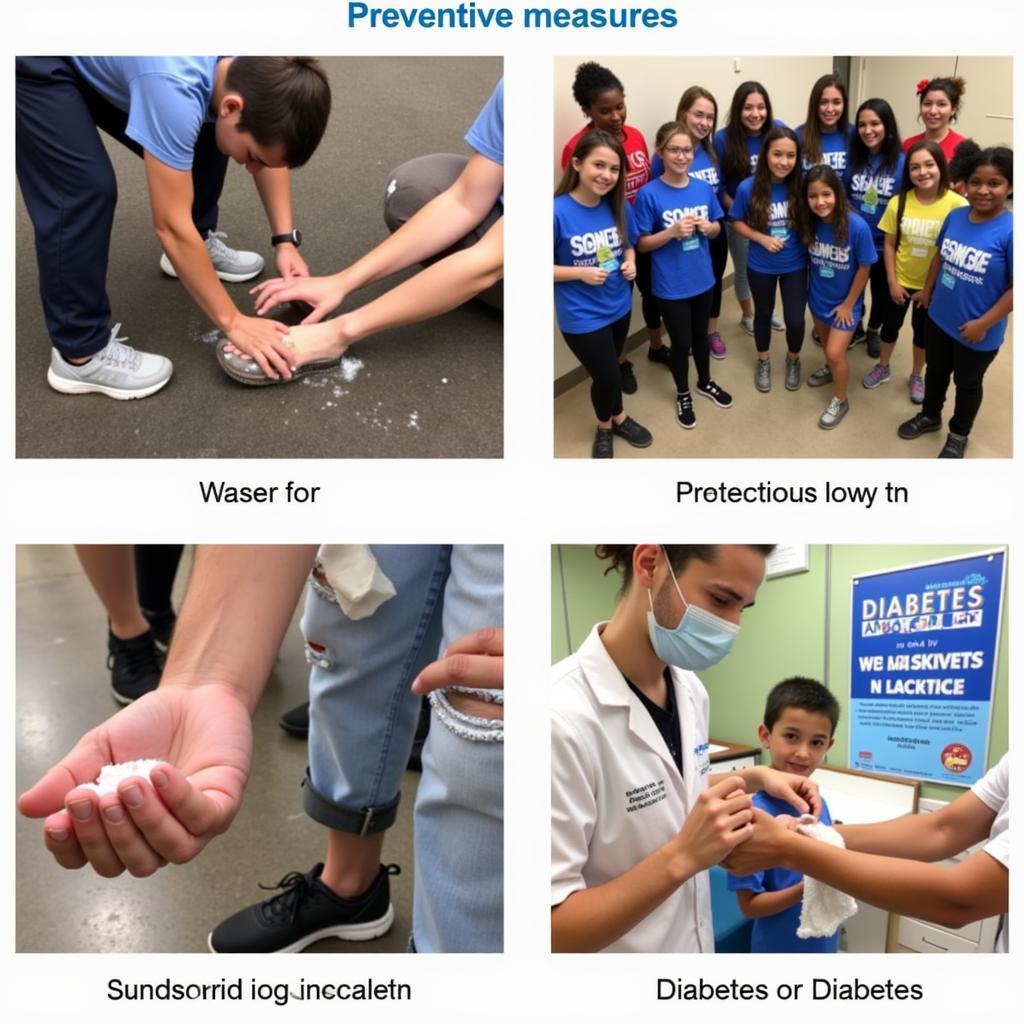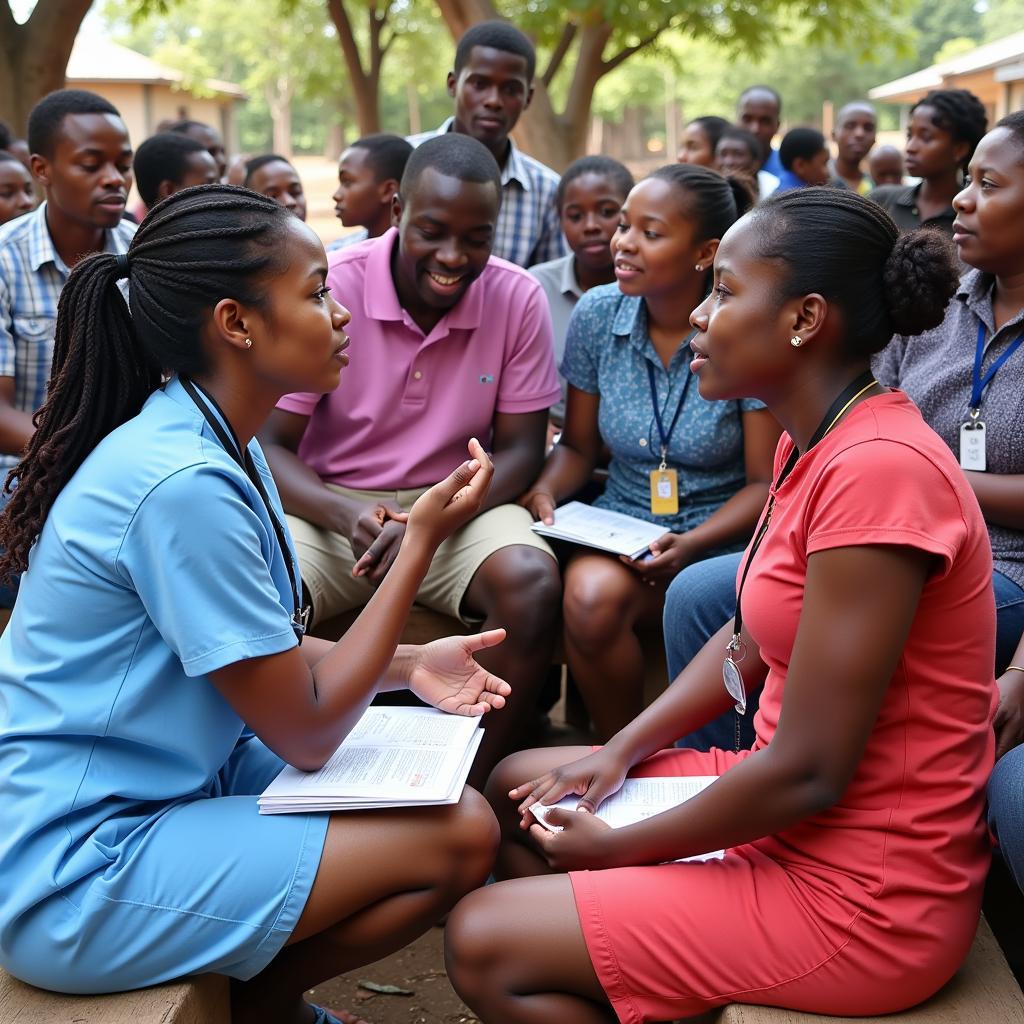Understanding African Foot Disease: Causes, Symptoms, and Treatments
African Foot Disease, a term not recognized in standard medical terminology, can cause confusion and anxiety. This article delves into the possible conditions associated with this phrase, providing clarity and addressing concerns. While “African foot disease” lacks a formal medical definition, it likely refers to a range of foot ailments prevalent in Africa due to various factors like climate, socioeconomic conditions, and access to healthcare.
Debunking the Myth of a Singular “African Foot Disease”
It is crucial to understand that a single disease labeled “African foot disease” doesn’t exist. Africa, a diverse continent with a wide array of environmental and living conditions, experiences various foot-related health issues. These can range from fungal infections like athlete’s foot to parasitic diseases like jiggers, and even complications from chronic illnesses like diabetes.
Common Foot Ailments in Africa: A Closer Look
Let’s explore some foot health challenges frequently encountered by people in Africa:
- Fungal Infections: Humid climates create a breeding ground for fungi. Athlete’s foot, characterized by itching, scaling, and redness, is common.
- Jiggers (Chigoe Fleas): These parasitic sand fleas burrow into the skin, particularly feet, causing intense itching, swelling, and potential secondary infections.
- Wounds and Ulcers: Limited access to footwear in some areas increases the risk of cuts, punctures, and wounds that can develop into ulcers, especially for individuals with diabetes.
- Diabetic Foot Complications: Diabetes is a growing concern in Africa. Nerve damage and poor blood circulation can lead to foot ulcers, infections, and even amputations if left untreated.
Addressing the Challenges: Prevention and Treatment
 Preventing Foot Ailments in Africa
Preventing Foot Ailments in Africa
Managing and preventing foot problems in Africa necessitate a multi-pronged approach:
- Hygiene is Key: Regularly washing feet with soap and water, drying them thoroughly, and wearing clean socks can prevent many fungal infections.
- Footwear for Protection: Wearing shoes, especially in areas prone to jiggers or sharp objects, provides a barrier against parasites and injuries.
- Early Detection and Treatment: Promptly seeking medical attention for any foot issues ensures timely treatment and prevents complications.
- Diabetes Management: Proper diabetes control through medication, diet, and regular checkups is crucial in preventing foot ulcers and other related problems.
The Importance of Foot Health Awareness
 Promoting Foot Health Awareness in Africa
Promoting Foot Health Awareness in Africa
While the term “African foot disease” might be misleading, it highlights the importance of foot health awareness on the continent. Educating communities about common foot ailments, their prevention, and the importance of seeking timely medical care can significantly reduce the burden of these conditions.
Frequently Asked Questions About Foot Health in Africa
Can traditional remedies treat foot problems?
While some traditional remedies might offer temporary relief, it’s vital to consult a healthcare professional for proper diagnosis and treatment.
What are the signs of a serious foot infection?
Increased pain, redness, swelling, warmth, pus discharge, foul odor, and fever require immediate medical attention.
How can I support foot health initiatives in Africa?
Several organizations focus on improving foot health in Africa. You can contribute through donations, volunteering, or raising awareness.
Taking a Step Towards Healthier Feet in Africa
While the term “African foot disease” may lack medical accuracy, it underscores the importance of addressing foot health challenges faced by many in Africa. By understanding the diverse range of conditions, promoting preventive measures, and ensuring access to quality healthcare, we can collectively take a step towards healthier feet and improved well-being for communities across the continent. Remember, early detection and intervention are key to preventing complications and ensuring healthy feet for life.
For any concerns or further information, please do not hesitate to contact us. Our dedicated team is available 24/7 to assist you. You can reach us at +255768904061, kaka.mag@gmail.com, or visit our office located in Mbarali DC Mawindi, Kangaga, Tanzania. You might also find these resources helpful:
- Learn more about the African bush dog and its unique characteristics.
- Explore the fascinating world of African frogs and their diverse habitats.


